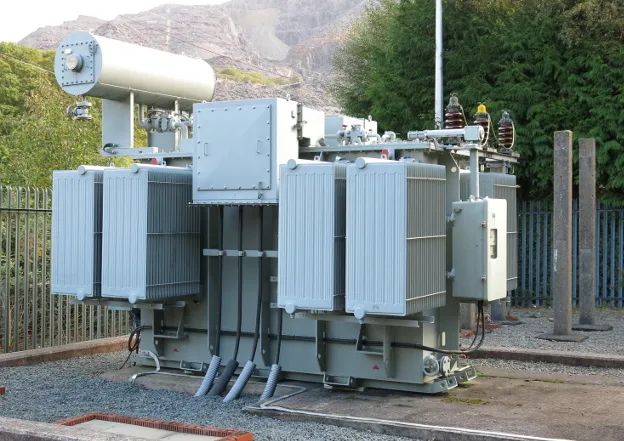Electricity is a fundamental element of modern life, impacting almost every aspect of society. From lighting up homes to powering industries, the role of electrical systems cannot be overstated. Whether in rural or urban areas, the presence of reliable and efficient electrical infrastructure is essential for economic growth, quality of life, and community development. This article delves into the importance of electrical systems in both rural and urban settings, exploring how they serve as the backbone of modern living and influence every facet of society.
The Importance of Electricity in Rural Areas
Rural areas often face challenges in terms of access to reliable electricity. Historically, many rural communities were underserved by electrical infrastructure, limiting their potential for growth. However, in recent years, there has been a push to extend electrical services to these areas, recognizing that access to power is crucial for improving living standards.
Electricity in rural areas enables the functioning of essential services such as healthcare, education, and agriculture. Schools can now remain open for longer hours, providing students with more opportunities to learn. Medical facilities can store vaccines and medicines that require refrigeration, ensuring that healthcare delivery is not interrupted. Additionally, agricultural processes such as irrigation, crop processing, and livestock management can be made more efficient through the use of electric-powered machinery, leading to better yields and higher income for farmers.
Moreover, electricity can drive rural entrepreneurship. With power available, small businesses such as shops, workshops, and food production units can operate more effectively. This leads to job creation and boosts the local economy. The presence of electrical infrastructure thus plays a critical role in reducing poverty and fostering economic development in rural areas.
The Impact of Electrical Systems on Urban Development
In urban areas, electricity is the driving force behind industrialization, innovation, and overall economic prosperity. Cities depend on reliable power to fuel everything from manufacturing plants and office buildings to hospitals, transportation systems, and entertainment venues. As urban populations continue to grow, the demand for energy increases, making it essential for cities to upgrade their electrical infrastructure to meet these needs.
Electrical systems in urban areas are not just about providing light and heat. They are integral to the functioning of modern industries. For instance, in the manufacturing sector, electricity powers machinery that drives mass production, creating goods and services that contribute significantly to the economy. Similarly, in the service sector, electricity is needed to run everything from data centers that support the digital economy to the networks that deliver clean water, sewage services, and waste management.
The urbanization of the world is rapidly increasing, and as a result, cities are looking for ways to optimize their electrical systems to accommodate this growth. Energy-efficient solutions, renewable energy sources, and smart grid technology are becoming integral to urban electrical systems, ensuring sustainability and minimizing the carbon footprint of cities.
How Electrical Systems Improve Quality of Life
Electricity affects nearly every aspect of daily life, from the way we work and study to how we communicate and entertain ourselves. In both rural and urban settings, electrical systems contribute directly to improving the quality of life for individuals and families.
In urban areas, electrical infrastructure supports the growth of education and innovation. With access to the internet, students and professionals can engage in online learning, research, and business activities. Smart homes, powered by electricity, offer enhanced comfort and convenience, enabling individuals to manage their homes with advanced technology such as automated lighting, heating, and security systems.
In rural areas, electricity transforms the living conditions of individuals and families. It enables farmers to access modern equipment that enhances productivity and ensures food security. It also provides access to communication tools, allowing people to stay connected with the world beyond their communities. This connectivity fosters social inclusion, as individuals can engage in global conversations, access essential services, and participate in the broader economy.
The Role of Electrical Installation and Commissioning Services in India
In both rural and urban areas, the successful implementation of electrical systems relies heavily on high-quality electrical installation and commissioning services. These services ensure that electrical systems are installed correctly, meet safety standards, and operate efficiently from day one. Electrical Installation and Commissioning Services in India are provided by specialized companies that ensure seamless integration of power systems in buildings, industries, and public infrastructure.
Companies like Manikaran Enterprises play a key role in offering these services across India. By ensuring that electrical systems are set up properly and maintained over time, they help communities in both rural and urban areas benefit from uninterrupted power. Whether it’s for residential buildings or large-scale industrial projects, the expertise and experience of electrical service providers are crucial for sustainable growth and development.
Future Trends in Electrical Infrastructure
As we move into the future, the evolution of electrical systems continues to advance. In both rural and urban areas, the focus is shifting toward more sustainable, energy-efficient solutions. With the rise of renewable energy sources like solar, wind, and hydro power, communities are looking for ways to reduce their dependence on traditional fossil fuels and move toward cleaner, greener energy options.
The implementation of smart grids is another significant development. Smart grids use digital technology to optimize the distribution and consumption of electricity, improving efficiency and reliability. This is particularly beneficial for urban areas where energy demand is high and diverse. For rural areas, the integration of renewable energy sources with smart grid technology holds the promise of providing reliable power, even in remote locations.
Conclusion
Electrical infrastructure is the backbone of modern living, enabling both rural and urban communities to grow, develop, and thrive. In rural areas, electricity empowers communities by improving agricultural productivity, supporting healthcare and education, and fostering entrepreneurship. In urban areas, electrical systems drive industrial growth, innovation, and overall prosperity. As we continue to evolve, the importance of efficient and reliable electrical systems will only increase, supporting the development of sustainable, smart, and connected communities.
For those looking to enhance their electrical infrastructure, partnering with a trusted provider is key. Top Electrical Solution Company in Rajasthan can offer expert solutions for both residential and commercial projects, ensuring that electrical systems are built to last and deliver the necessary power for modern living.
With companies like Manikaran Enterprises leading the way, the future of electrical systems in India looks bright and full of potential.




